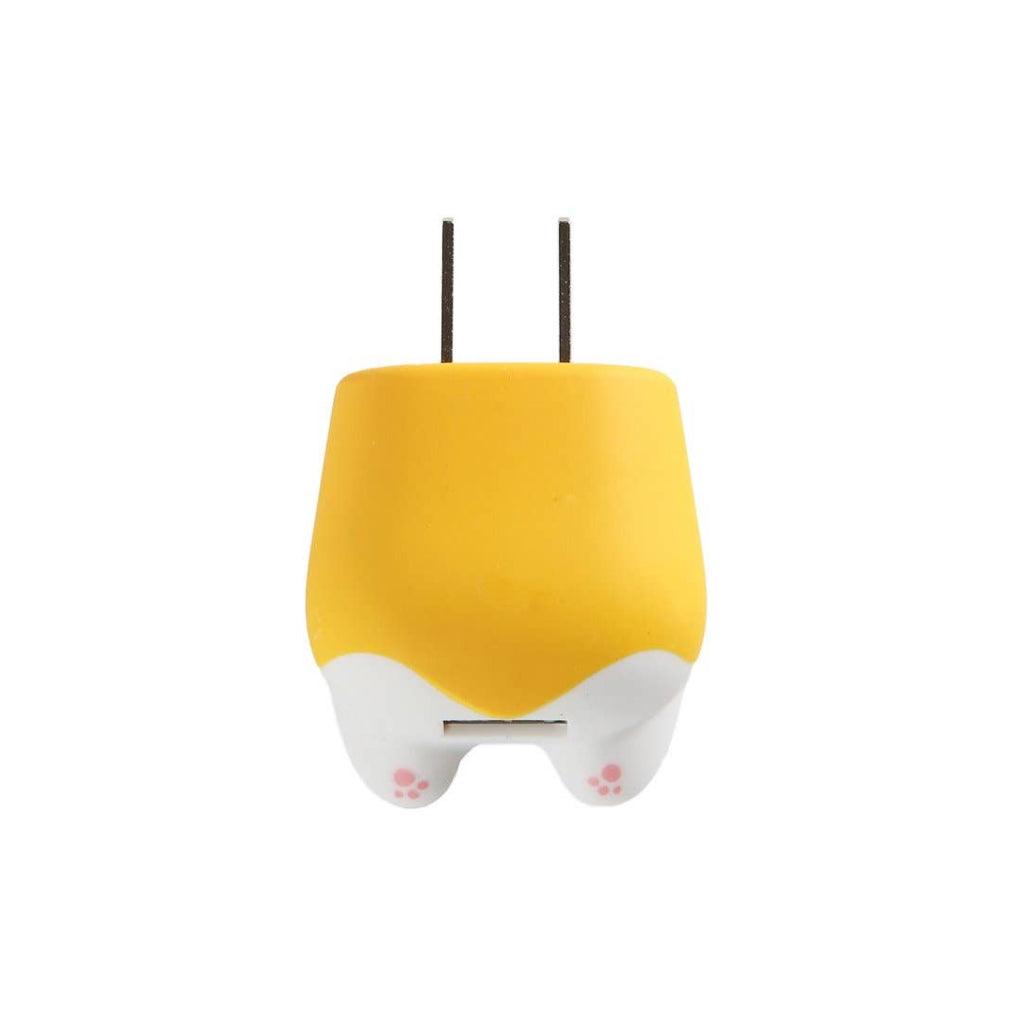How Do You Know When to See a Dermatologist for Acne? Signs and Expert Advice
"Clear skin starts with expert care. Know when to see a dermatologist for acne."
Introduction:
Acne is a common skin condition that can affect people of all ages. While mild cases of acne can often be managed with over-the-counter treatments, more severe cases may require the expertise of a dermatologist. Knowing when to see a dermatologist for acne can help ensure that you receive the appropriate treatment for your skin. In this article, we will discuss the signs that indicate it may be time to see a dermatologist for acne, as well as expert advice on how to best manage your skin condition.
Signs You Need Acne Treatment
Acne is a common skin condition that affects millions of people worldwide. While it is often associated with teenagers going through puberty, acne can affect individuals of all ages. Dealing with acne can be frustrating and can have a negative impact on one's self-esteem. If you are struggling with acne and wondering if it's time to see a dermatologist, there are a few signs to look out for.
One of the most obvious signs that you may need to see a dermatologist for acne is if over-the-counter treatments are not working. If you have tried various acne products and home remedies with no improvement in your skin, it may be time to seek professional help. A dermatologist can assess your skin and recommend a personalized treatment plan that is tailored to your specific needs.
Another sign that you may need to see a dermatologist for acne is if your acne is severe or persistent. Severe acne can manifest as deep, painful cysts or nodules that do not respond to over-the-counter treatments. If you have been dealing with persistent acne for several months and it is not improving, it is important to consult with a dermatologist. They can help determine the underlying cause of your acne and recommend appropriate treatment options.
If your acne is leaving behind scars or dark spots on your skin, it is also a good idea to see a dermatologist. Acne scars can be difficult to treat on your own and may require professional intervention. A dermatologist can recommend treatments such as laser therapy, chemical peels, or microneedling to help improve the appearance of acne scars and hyperpigmentation.
In addition to physical signs of acne, it is also important to pay attention to how your acne is affecting your mental health. If your acne is causing you significant distress or impacting your self-esteem, it may be time to seek help from a dermatologist. They can provide support and guidance on how to manage your acne and improve your overall well-being.
When it comes to seeking treatment for acne, it is important to remember that everyone's skin is unique. What works for one person may not work for another, which is why it is important to consult with a dermatologist for personalized advice. A dermatologist can assess your skin type, acne severity, and any underlying factors that may be contributing to your acne.
If you are unsure whether or not you need to see a dermatologist for acne, it is always best to err on the side of caution and schedule a consultation. A dermatologist can provide expert advice on how to manage your acne and improve the health of your skin. Remember, you don't have to suffer in silence – help is available.
Severe Acne Symptoms
Acne is a common skin condition that affects millions of people worldwide. While mild acne can often be managed with over-the-counter products, severe acne may require the expertise of a dermatologist. But how do you know when it's time to see a dermatologist for your acne? In this article, we'll discuss some signs that indicate you may need professional help, as well as expert advice on when to seek treatment.
Severe acne symptoms can manifest in a variety of ways, and it's important to recognize these signs early on to prevent further skin damage. One of the most common symptoms of severe acne is the presence of deep, painful cysts or nodules. These large, inflamed bumps can be difficult to treat with over-the-counter products and may require prescription medications or procedures to effectively manage.
Another sign of severe acne is persistent breakouts that don't seem to improve with regular skincare routines. If you find that your acne is getting worse despite your best efforts, it may be time to consult a dermatologist for a more personalized treatment plan. Dermatologists have access to a wide range of prescription medications and treatments that can target stubborn acne and help you achieve clearer skin.
In addition to physical symptoms, severe acne can also take a toll on your mental health. Acne can be a source of embarrassment and self-consciousness, leading to feelings of low self-esteem and anxiety. If your acne is impacting your quality of life and self-confidence, it's important to seek help from a dermatologist who can provide both medical treatment and emotional support.
Expert dermatologists recommend seeking professional help for acne if you experience any of the following symptoms:
- Severe, painful cysts or nodules
- Persistent breakouts that don't improve with over-the-counter products
- Acne that is leaving behind scars or hyperpigmentation
- Acne that is affecting your mental health and self-esteem
If you're unsure whether your acne qualifies as severe, it's always best to consult with a dermatologist for an accurate assessment. Dermatologists are trained to diagnose and treat a wide range of skin conditions, including severe acne, and can provide personalized treatment plans tailored to your specific needs.
When you visit a dermatologist for acne, they will conduct a thorough evaluation of your skin and medical history to determine the best course of treatment. This may include prescription medications, topical treatments, or in-office procedures such as chemical peels or laser therapy. Your dermatologist will work with you to develop a treatment plan that addresses your unique skin concerns and helps you achieve clearer, healthier skin.
In conclusion, severe acne can be a challenging and frustrating condition to deal with, but you don't have to suffer in silence. If you're experiencing severe acne symptoms that aren't improving with over-the-counter products, it may be time to see a dermatologist for professional help. By seeking treatment early on, you can prevent further skin damage and improve your overall quality of life. Don't hesitate to reach out to a dermatologist for expert advice and personalized care for your acne.
Dermatologist vs Over-the-Counter Acne Care

Acne is a common skin condition that affects millions of people worldwide. While many individuals may experience occasional breakouts that can be managed with over-the-counter products, there are times when it may be necessary to seek the expertise of a dermatologist. But how do you know when it's time to make that appointment?
One of the first signs that it may be time to see a dermatologist for your acne is if you have tried multiple over-the-counter products without success. While there are many effective acne treatments available without a prescription, some cases of acne may require a more personalized approach. A dermatologist can assess your skin and recommend a treatment plan tailored to your specific needs.
Another indication that it may be time to see a dermatologist is if your acne is severe or persistent. Severe acne can cause scarring and have a significant impact on your self-esteem. A dermatologist can help you manage your acne and prevent long-term damage to your skin.
If you are experiencing painful cysts or nodules, it is important to seek medical attention. These deep, inflamed lesions can be difficult to treat with over-the-counter products and may require prescription medications or procedures to resolve.
Additionally, if your acne is accompanied by other symptoms such as fever, fatigue, or joint pain, it may be a sign of an underlying medical condition that requires medical attention. A dermatologist can help determine the cause of your symptoms and provide appropriate treatment.
It is also important to see a dermatologist if you are pregnant or breastfeeding and experiencing acne. Some acne treatments are not safe during pregnancy or while breastfeeding, so it is important to consult with a dermatologist who can recommend safe and effective options for managing your acne.
Ultimately, the decision to see a dermatologist for your acne is a personal one. If you are unsure whether you should make an appointment, consider scheduling a consultation to discuss your concerns with a dermatologist. They can assess your skin, provide expert advice, and recommend a treatment plan that is right for you.
In conclusion, while over-the-counter products can be effective for managing mild acne, there are times when it may be necessary to see a dermatologist for more advanced care. If you have tried multiple over-the-counter products without success, have severe or persistent acne, are experiencing painful cysts or nodules, or have other symptoms accompanying your acne, it may be time to seek the expertise of a dermatologist. Remember, your skin is unique, and a dermatologist can provide personalized care to help you achieve clear, healthy skin.
Persistent Acne Problems
Acne is a common skin condition that affects millions of people worldwide. While occasional breakouts are normal, persistent acne problems can be frustrating and even impact one's self-esteem. If you're struggling with acne that just won't seem to go away, it may be time to consider seeing a dermatologist for expert advice and treatment.
One of the first signs that it may be time to see a dermatologist for your acne is if over-the-counter treatments are not providing the desired results. While products like cleansers, spot treatments, and moisturizers can be effective for mild acne, more severe cases may require prescription-strength medications or other interventions. If you've been using over-the-counter products consistently for several weeks without improvement, it's a good idea to seek professional help.
Another indication that it's time to see a dermatologist for your acne is if you're experiencing painful or deep cystic acne. Cystic acne is a severe form of acne that can be difficult to treat on your own. It often appears as large, red, inflamed bumps under the skin that can be painful to the touch. Dermatologists have access to a variety of treatments, such as oral medications, injections, and procedures, that can help manage cystic acne and prevent scarring.
If your acne is leaving behind dark spots or scars, it's also a good idea to consult with a dermatologist. Post-inflammatory hyperpigmentation (dark spots) and acne scars can be challenging to treat and may require professional intervention. Dermatologists can recommend treatments like chemical peels, laser therapy, or microneedling to help fade dark spots and improve the appearance of acne scars.
Additionally, if your acne is causing emotional distress or impacting your quality of life, it's important to seek help from a dermatologist. Acne can have a significant impact on one's self-esteem and mental well-being, leading to feelings of embarrassment, anxiety, or depression. A dermatologist can provide not only effective treatments for acne but also support and guidance to help you feel more confident and comfortable in your skin.
When you visit a dermatologist for your acne, they will conduct a thorough evaluation of your skin and medical history to determine the best course of treatment for your specific needs. They may recommend a combination of topical medications, oral medications, lifestyle changes, and in-office procedures to help manage your acne and prevent future breakouts. It's important to follow your dermatologist's recommendations closely and be patient, as acne treatments can take time to show results.
In conclusion, if you're struggling with persistent acne problems that are not improving with over-the-counter treatments, it may be time to see a dermatologist for expert advice and treatment. Signs that you should seek professional help include painful cystic acne, dark spots or scars, and emotional distress related to your acne. A dermatologist can provide personalized care and support to help you achieve clearer, healthier skin. Don't hesitate to reach out for help if you're struggling with acne – you deserve to feel confident and comfortable in your skin.
Cystic Acne Help
Acne is a common skin condition that affects millions of people worldwide. While most cases of acne can be managed with over-the-counter treatments, there are times when it's best to seek the help of a dermatologist. But how do you know when it's time to make that appointment? In this article, we'll discuss some signs that indicate you should see a dermatologist for your acne, as well as expert advice on how to best manage your skin.
One of the most obvious signs that you should see a dermatologist for your acne is if over-the-counter treatments aren't working. If you've tried various creams, gels, and cleansers without seeing any improvement in your skin, it may be time to seek professional help. A dermatologist can assess your skin and recommend a personalized treatment plan that may include prescription medications or procedures to help clear up your acne.
Another sign that you should see a dermatologist for your acne is if you're experiencing severe or cystic acne. Cystic acne is a more severe form of acne that is characterized by deep, painful cysts that can leave behind scars. If you're dealing with cystic acne, it's important to see a dermatologist as soon as possible to prevent further scarring and to get the treatment you need to clear up your skin.
In addition to the severity of your acne, the frequency and location of your breakouts can also be indicators that it's time to see a dermatologist. If you're experiencing frequent breakouts that aren't responding to treatment, or if your acne is primarily located on your chest, back, or other areas of your body, it's a good idea to consult with a dermatologist. They can help determine the underlying cause of your acne and recommend the best course of action to help clear up your skin.
Expert advice on managing acne often includes a combination of treatments tailored to your specific skin type and concerns. In addition to prescription medications, your dermatologist may recommend lifestyle changes such as adopting a gentle skincare routine, avoiding harsh products that can irritate your skin, and making dietary changes to help reduce inflammation and improve your skin's overall health.
It's also important to remember that acne is a complex skin condition that can be influenced by a variety of factors, including hormones, genetics, and lifestyle habits. That's why it's essential to work closely with a dermatologist to develop a comprehensive treatment plan that addresses all aspects of your acne. By seeking professional help, you can not only clear up your skin but also prevent future breakouts and scarring.
In conclusion, knowing when to see a dermatologist for your acne can be crucial in effectively managing your skin. If over-the-counter treatments aren't working, if you're dealing with severe or cystic acne, or if your breakouts are frequent and persistent, it's time to consult with a dermatologist. By working with a skincare expert, you can receive personalized treatment recommendations and expert advice on how to best care for your skin. Don't wait until your acne becomes a bigger problem – schedule an appointment with a dermatologist today to get the help you need to achieve clear, healthy skin.
Expert Skincare Advice for Acne
Acne is a common skin condition that affects millions of people worldwide. While some cases of acne can be managed with over-the-counter products, there are times when it's best to seek the help of a dermatologist. But how do you know when it's time to make that appointment? In this article, we'll discuss some signs that indicate you should see a dermatologist for your acne, as well as expert advice on how to best manage your skin.
One of the most obvious signs that you should see a dermatologist for your acne is if over-the-counter products aren't working. If you've tried various cleansers, spot treatments, and moisturizers without seeing any improvement in your skin, it may be time to seek professional help. A dermatologist can assess your skin and recommend a personalized treatment plan that may include prescription medications or procedures to help clear up your acne.
Another sign that you should see a dermatologist for your acne is if you're experiencing severe or cystic acne. These types of acne can be painful, stubborn, and may lead to scarring if not properly treated. A dermatologist can provide you with the necessary medications and treatments to help reduce inflammation, prevent scarring, and clear up your skin.
If you're noticing an increase in breakouts or if your acne is affecting your self-esteem and quality of life, it's also a good idea to see a dermatologist. Acne can have a significant impact on your mental health and confidence, and a dermatologist can help you address these concerns while also treating your skin.
In addition to these signs, there are a few other factors to consider when deciding whether to see a dermatologist for your acne. If you have a history of severe acne or if acne runs in your family, you may be more prone to developing persistent or severe acne yourself. In these cases, it's best to see a dermatologist early on to prevent long-term skin damage.
Expert dermatologists also recommend seeing a professional if you're experiencing acne in unusual areas, such as your chest, back, or buttocks. These areas can be more difficult to treat with over-the-counter products, and a dermatologist can provide you with the appropriate treatments to help clear up your skin.
When you do decide to see a dermatologist for your acne, it's important to be prepared for your appointment. Make a list of any medications you're currently taking, as well as any skincare products you're using. Be ready to discuss your skincare routine, diet, and any other factors that may be contributing to your acne.
During your appointment, your dermatologist will examine your skin, discuss your concerns, and recommend a treatment plan tailored to your specific needs. This may include prescription medications, topical treatments, or in-office procedures such as chemical peels or laser therapy.
Remember, acne is a common skin condition that can be effectively treated with the help of a dermatologist. If you're experiencing persistent or severe acne, don't hesitate to seek professional help. Your skin will thank you for it!
Conclusion
If over-the-counter treatments are not working, if acne is severe or painful, if acne is leaving scars, or if acne is affecting your self-esteem, it may be time to see a dermatologist for expert advice and treatment. A dermatologist can provide personalized treatment options and help prevent long-term skin damage.







